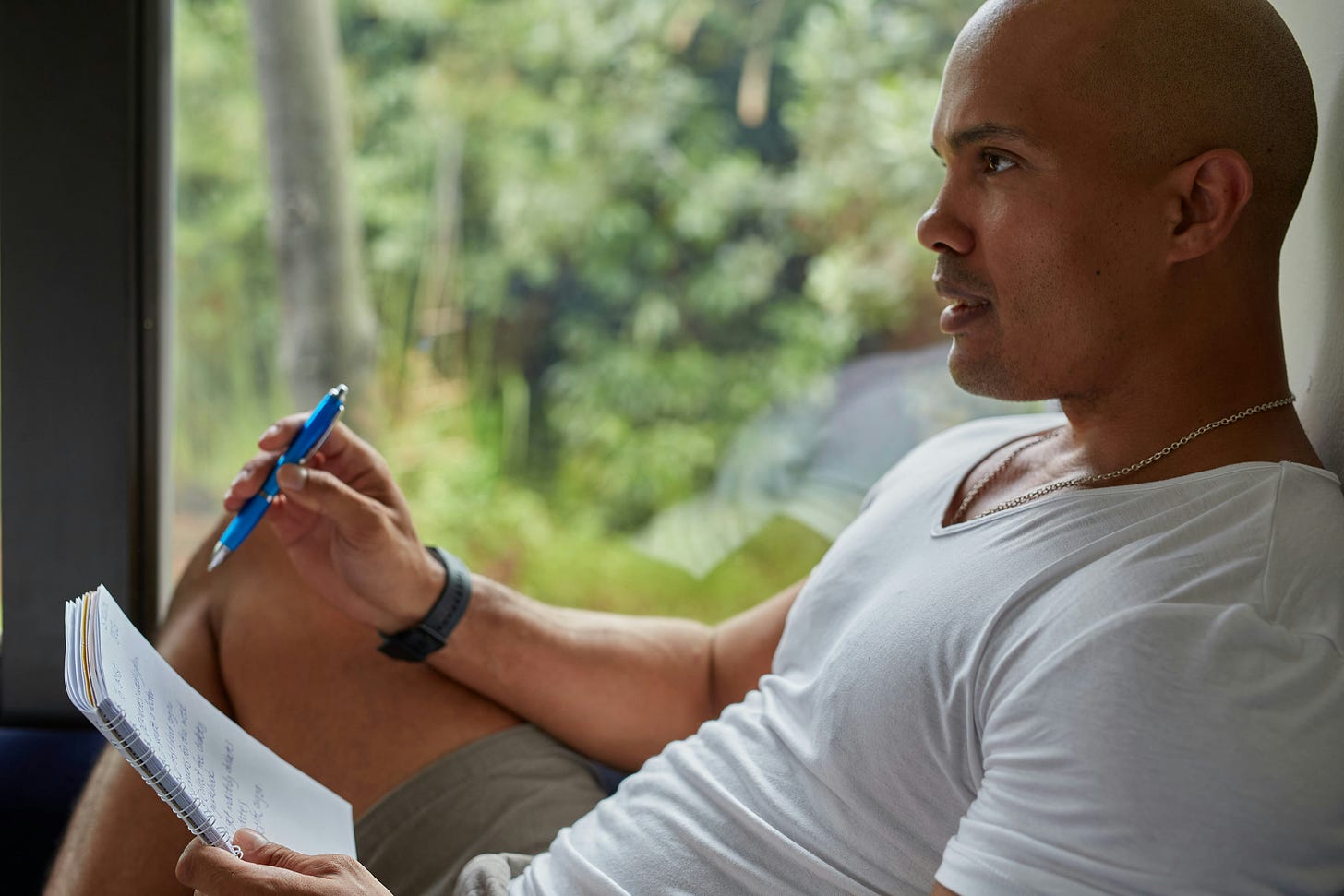A surprisingly simple strategy for coping under pressure
Taking an “open-label placebo” can seriously reduce anxiety | How the brain’s “blue dot” regulates your sleep
Hello, and happy weekend!
Thank you to everyone who has subscribed. In case you’re wondering why you signed up: 60-Second Psychology is a weekly newsletter that aims to provide evidence-based life hacks and curious facts about the workings of the human mind.
This week’s edition concerns a simple yet effective way to reduce performance anxiety.
Imagine you’re facing a stressful situation where you need to perform at your best, such as a driving test, a job interview, or a public speech. You are given a box of pills clearly labelled “placebo” and told to take a couple a day in the run-up to your event. Even though you know that they contain nothing more than sugar, you go through the ritual. You find your nerves melting away, and your performance soars as a result.
This may sound strange: the placebo effect usually relies on some form of deception. Someone suffering from anxiety might be given a pill that looks very similar to a standard stress-relieving drug. Believing that they are taking the real thing, they feel considerably less anxious and better able to cope. A growing body of research, however, suggests that people can often reap the same benefits even when they know that they are taking a placebo.
In a very recent study, Michael Schaefer and Sören Enge at MSB Medical School Berlin decided to test whether this approach might prevent people from choking under pressure. To do so, they recruited 68 learner drivers. Half were given a box of “open label” placebo pills. “Placebo pills (28), take one in the morning and one in the evening, for 14 days” they were told. The rest simply prepared as normal.
The effects on the participants’ moods are impressive enough. Whereas the anxiety of the people in the control group steadily escalated as the test approached, those taking the placebo pills felt considerably more relaxed. (Indeed, according to a couple of measures, their anxiety decreased between the first day of the trial, and the day before their test.)
Even more strikingly, however, the ritual made a huge difference to their performance on the exam. More than 70% of those taking the placebo pills passed, compared to 47% in the control group. Put another way, the inert pills had effectively halved their chances of failing.
You might expect this to be a direct result of the participants’ beliefs. Perhaps some people already had a lot of faith in the placebo effect, and this made them feel more confident about taking the test. The researchers did not find strong evidence of this, though – the pills seemed to work just as well for those who were very sceptical of the whole procedure, which suggests some subconscious processes are involved. The simple ritual of taking the pill might have left the participants feeling more empowered, which could in turn have encouraged them to take more care and attention over their preparation before the test.
The finding chimes with various other studies demonstrating that open-label pills can calm our nerves before important events, including academic exams and sports fixtures. They may even help people deal with life stress more generally. One study found that a 2-week course of open-label placebos improved participants’ symptoms of anxiety and depression during the Covid-19 pandemic.
Clearly a box of sugar pills will never be a panacea, and you should always visit a medical professional if you have any concerns about your mental health and ability to cope. If you are intrigued by this research, however, you can now easily buy some placebo pills from online outlets. I’d love to hear about your experiences.
Personally, I prefer to see these open-label pills as an example of ritualised self-care – and there are many other ways that we can put that principle into practice. We all have certain behaviours that will reliably shift our mood and leave us feeling a bit more empowered: taking a walk, treating ourselves to a fancy drink, listening to music, practising yoga, or having a hot bath. When we feel under pressure, it’s easy to abandon these routines – but that’s the time we need them the most.
How to control the brain’s dimmer switch
I’m endlessly fascinated by a tiny area of the brainstem known as the "locus coeruleus", Latin for "blue dot". It is a literal description: the neurons in the locus coeruleus are dyed the colour of sapphire from the production of a particular neurotransmitter, called norepinephrine. This is also a clue to the blue dot's function, since norepinephrine controls our physiological and psychological arousal. For a long time, scientists assumed that the locus coeruleus was dormant during sleep, but it is now becoming clear that it is never completely quiet, with low levels of intermittent activity that may regulate the depths of our slumbers, with important implications for our understanding of insomnia.
You can read about this research in my latest piece for the BBC. I also offer a few practical strategies to calm the brain before bed. These techniques that have helped me to cure more than a decade of sleeplessness.
That’s all for this week. Thank you for reading! If you’ve enjoyed what you’ve read, please do hit subscribe, share with your connections, or DM me with your thoughts.
David x






